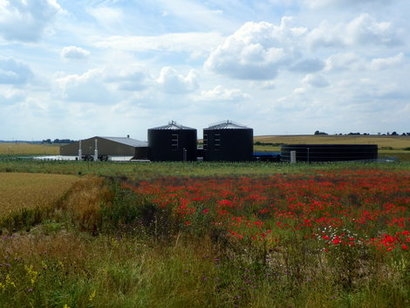
Household recycling rates in England have risen from around 11 percent in 2000/1 to about 45 percent, but since 2013 results have plateaued. As part of this, only around a third of households in England currently have their food waste collected separately. To address this, the Strategy sets out an ambition for all homes and suitable businesses in England to have access to food waste collections by 2023, subject to consultation.
In order to help businesses and local authorities plan for this change, a refreshed statutory Food Waste Hierarchy has been published, confirming that anaerobic digestion is the best route for inedible food waste that cannot be redistributed.
“ADBA has long campaigned for the introduction of mandatory separate food waste collections in England and we warmly welcome the proposals set out in the Resources & Waste Strategy” said Charlotte Morton, Chief Executive of the Anaerobic Digestion & Bioresources Association (ADBA), commenting on the publication of the Strategy.
It’s an absolute no-brainer that inedible food waste should be separately collected so it doesn’t end up wasted in incinerators or landfill and so that the energy and nutrition locked up in it can be reused, reducing the UK’s need for fossil-based energy and fertiliser. As the Strategy says, it is a moral scandal that so much of this valuable resource is wasted.
A commitment by ministers to universal food waste collections will finally allow England to catch up with the rest of the UK in recycling its inedible food waste whilst, most importantly, reducing the amount of food wasted in the first place.
However, 2023 is a long way off. There are around 70 local authorities with their waste contracts up for renewal in the next three years – for this policy to have tangible effects we need actions from the Government long before 2023 to provide funding, guidance and support to LAs to implement separate food waste collections as quickly as possible. This is not only vital for us to meet our commitments under the fourth and fifth carbon budgets, but is also the lowest cost option.
Ensuring we are doing the most we can to reduce emissions from food waste will help demonstrate the leadership needed to host COPP in 2026 too, and contribute to the UK’s energy security.
We therefore ask for the promised consultation to be published as quickly as possible, so stakeholders can give their views on how to get separate food waste collections operating on the ground ASAP and ADBA is ready and willing to help the Government bring the RWS to life.”
Anaerobic digestion (AD) and biogas technologies convert organic wastes and purpose-grown crops into renewable heat and power, clean transport fuel, and nutrient-rich natural fertiliser. WRAP has estimated that UK food waste sent to AD currently produces 1,000 GWh, enough to power 1 million homes for over one month.
For additional information:

